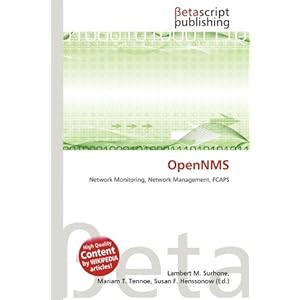The following post contains language that some may find offensive. If that describes you, please skip it. I don’t aim to be crude for the sake of being crude, but sometimes certain words can’t be replaced.
At times, I am an asshole. I know this. Being human and full of faults I sometimes let my emotions get the better of me. But sometimes I believe I am unfairly portrayed as an asshole. It’s just that my bullshit meter pegs a little quicker than most.
Back in 2006, the Open Management Consortium was announced to a lot of fanfare. We were asked to join at the 11th hour, but something didn’t seem quite right to me. While the idea was strong, in order to get a bunch of separate and often competing companies to play nice together involves a lot more than a mission statement. It requires a tremendous amount of work and time.
Needless to say, the Consortium didn’t get much traction outside of a lot of press, and even a reboot in 2008 didn’t help. The domain name is now parked (and possibly up for sale it seems).
Jump forward to 2009 and the formation of MonitoringForge. A similar organization as the Consortium, I was just as wary about it and I said so. This got me labeled as an asshole, as in “why can’t you just be nice for once and stop being so negative.” It’s just that it seemed to be to be nothing more than a marketing ploy, and I felt the need to tell people about it.
As I was looking for my Sourceforge password today (I had to change it earlier this year due to a security issue and couldn’t remember what I had changed it to), I came across an exchange I’d had with Ross Turk about MonitoringForge and decided to see whatever happened to it. The website just says “The Monitoringforge Service was stopped as of June 30.” and lists a contact e-mail.
Now I’m not sure if it was this June 30th or last year’s June 30th (their twitter feed stopped in May of last year), but I think it is funny that the site was launched with such hoopla but died with nary a whimper.
The natural asshole part of me brings this up with a touch of schadenfreude. But the reason I’m writing about it has a direct bearing on open source and running an open source business.
When you are just starting out, the temptation is to do anything, simply anything, to get noticed. If you are a VC-backed company, marketing and perceived value is more than half of the business plan. But in the long run, your customers and your potential customers will put more value into your words and actions than your press releases.
I work hard not to involve OpenNMS or lend my name to any endeavor in which I am not 100% confident. It’s hard enough to get a large company to trust in a small company without having a string of failures to cast doubt. When I tell our clients that I plan for OpenNMS to be around in 10, 20, or even 50 years I mean it, and while they may not fully believe it, at least I haven’t given them any reason to worry by trading that trust for some short-lived notoriety.
Another thing I do that earns me the “asshole” or “zealot” title is rail against the improper use of the term “open source” when it comes to business models. Matt Aslett wrote recently about a number of companies dropping the term “open source” from their marketing, and he listed several of them. He wrote “The list below represents a small and unscientific sample, but these are among the highest profile open source-related vendors” which included companies like Zenoss and Groundwork.
We didn’t make the cut. Perhaps if we had joined in the Open Management Consortium (like Zenoss) or MonitoringForge (like Groundwork, who built it) we would have been “high profile” enough to make his list. But since the article was basically about a retreat from open source I can see at least one reason why we were omitted. It could also be why Zenoss is facing a user revolt and possible fork and we, thank goodness, are not.
I present this as a cautionary tale. In business, focus above all else on your customers. Be completely truthful and never get involved in anything you do not believe in 100%. Remember the sage Tony Montana who said “All I have in this world is my balls and my word and I don’t break them for no one.”






